anthony galvin
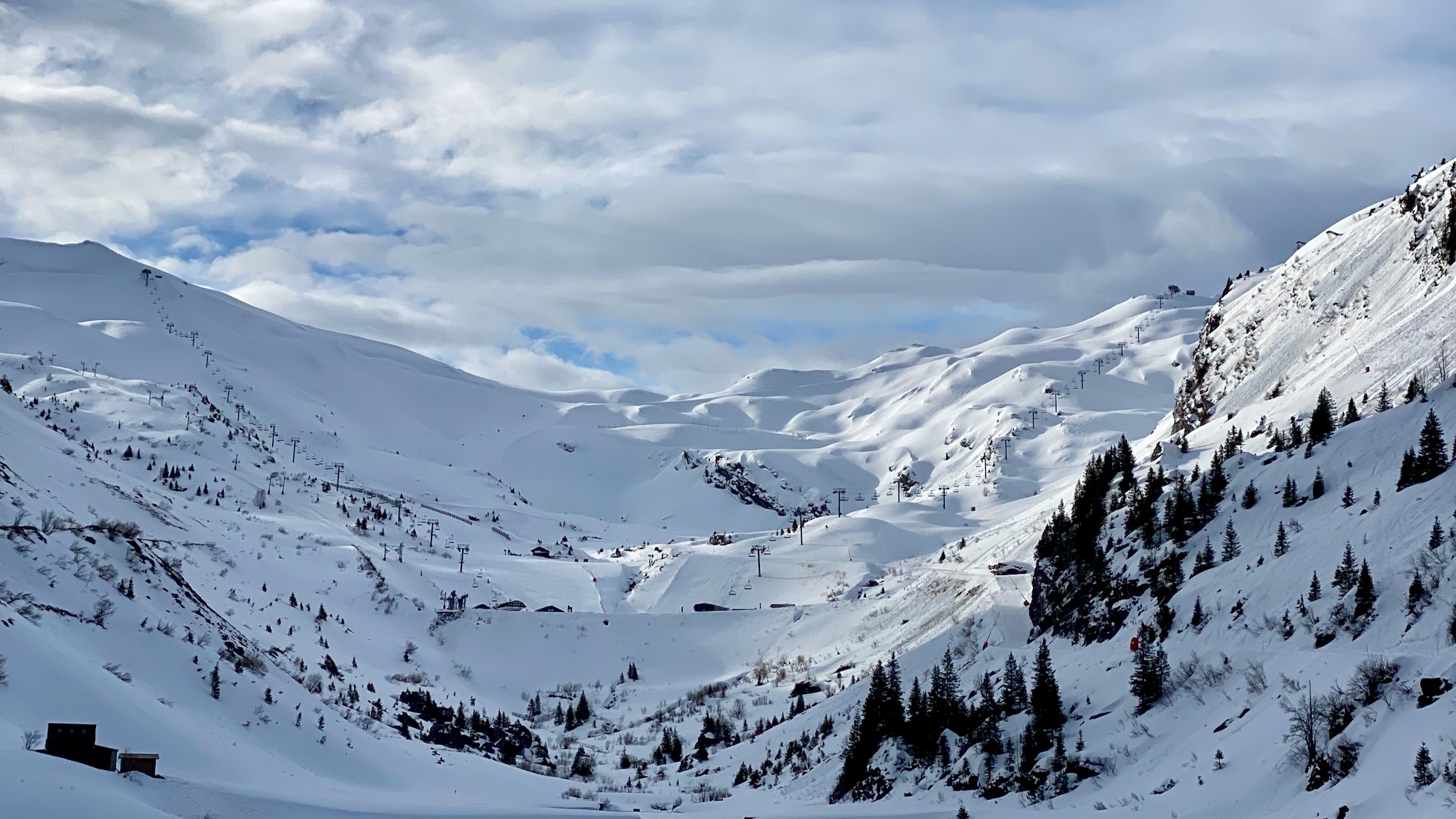
For a whole heap of reasons we usually end-up in the Alps for some spring skiing and snowboarding. The snow conditions have varied over the years. Weather in the mountains is unpredictable at the best of times. If you go to the mountains there's no point worrying about the weather, you just have to put the right kit on and get on with it (or sit it out in the cafe / chalet / cabin of your choice).
Environmentally resonsible winter sports holidays are clearly a difficult thing to achieve. Anyone interested in snow sports knows that many resorts are struggling with the impact of climate change. Fewer snow sure weeks - especially for lower resorts - reduces the viability of many winter tourist businesses across Europe (and beyond). Without at least 100 days of snow resorts will close. Any holiday is probably contributing to climate change, especially if you holiday in a ski-resort.
Despite the cognitive dissonance we pootle along pristine French roads, enjoying the mostly good charging infrastructure. And what a trip. Visiting old friends, making new ones. Having lots fun in the sun and snow - and wow - what great snow. For the entire week the weather alternates between warm blue sky days or massive dumps of snow. As the seasons change under the weight of human influence and inaction, it seems, at least for now, spring is the best time to catch the snow.
07/04/2024 permalink
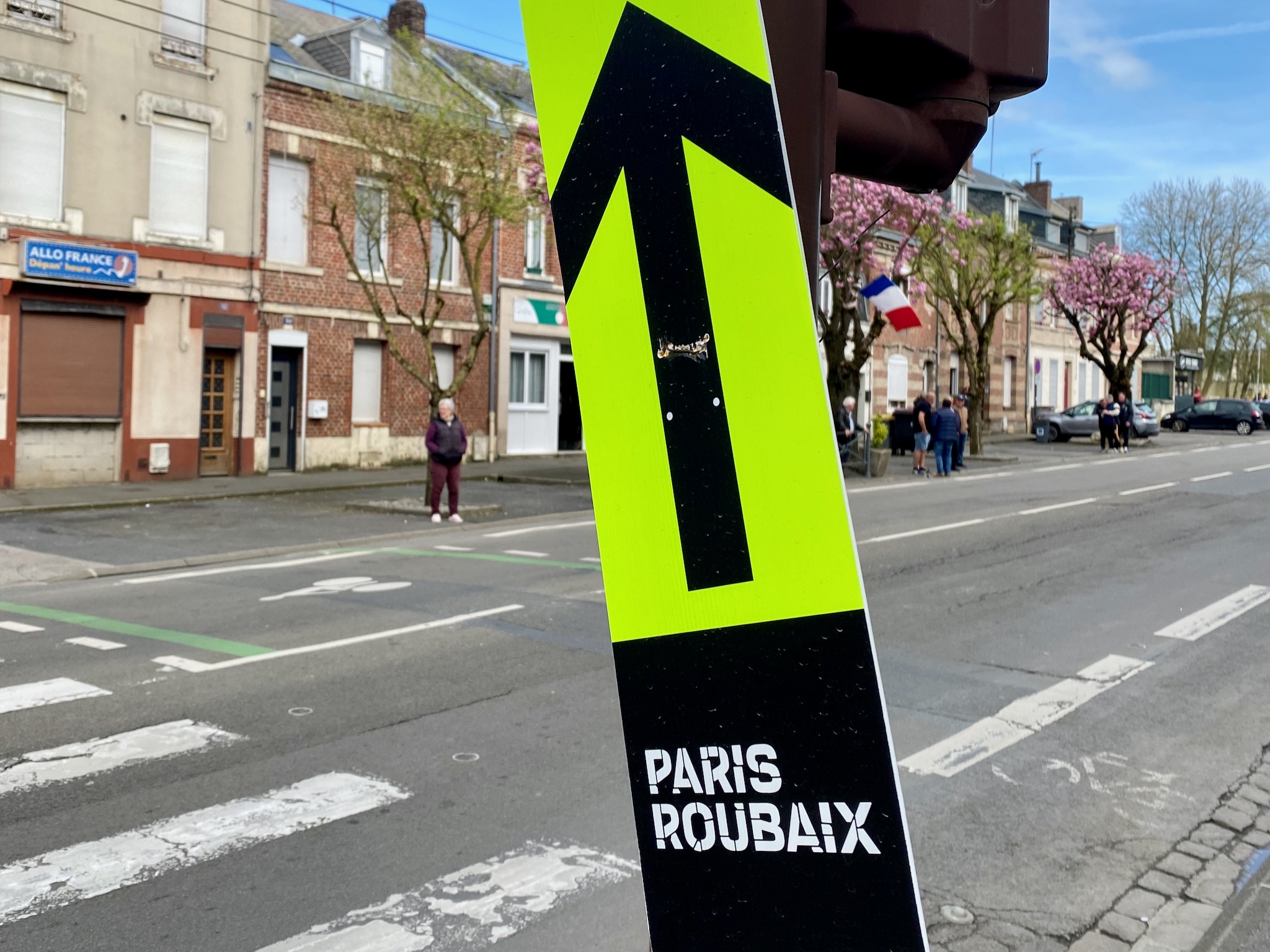
Whilst driving home from Morzine I realised that we were going to cross the route of Paris-Roubaix. So we accidentally / on-purpose managed to watch a little bit of the race at Saint Quentin.
07/04/2024 permalink
Rochdale scrubs up pretty well
Fantastic photos of the restored Rochdale Town Hall. A place that figuratively and literally loomed over my childhood. Whilst at the same time the government plans to sell off these kinds of buildings.
07/02/2024 permalink
Best photos of 2023
 Bridleway near Plumpton Wood, Northamptonshire
Bridleway near Plumpton Wood, Northamptonshire
Over the last few years we’ve been lucky to be able walk together before work. Remote working, a local school runs and an energetic dog combined to make this part of our weekday routine. Unfortunately this doesn’t happen so much now - new job and new school.
-
 Northern Lights from Maidford, Northamptonshire
Northern Lights from Maidford, Northamptonshire
For a brief moment, even South Northamptonshire was transported to the edge of the article circle. We took the kids up to the top of a hill near the house but it was too cloudy, and after an hour or so we took them home to warm up. A few hours later, pretty much in the middle of the night I went back out and grabbed this photo.
-
 Hovden, Hardangervidda, Norway
Hovden, Hardangervidda, Norway
A day on the slopes, with old friends. Magic.
-
 A deer runs across the lake at Vinje, Hardangervidda, Norway
A deer runs across the lake at Vinje, Hardangervidda, Norway
Looking out across the lake from my friends study. Amongst all the stillness a frenzy of legs and energy.
-
 Blue sky day in Morzine
Blue sky day in Morzine
Spring in the mountains. Blue sky and another chance to scoot around, this time with the family.
-
 Looking down on Avoriaz
Looking down on Avoriaz
About 20 years ago I came to visit Richard and stayed in what was then just an old barn. He took me up here and showed me this view. Still magic.
-
 Emma & Violet (Snr) at the Coronation Street Party
Emma & Violet (Snr) at the Coronation Street Party
I didn’t take this picture, but it’s one of my favourites. Emma and her grandmother - Nanar Violet. Violet had seen 5 monarchs in her lifetime and this coronation was just before her 100th birthday. Sadly no longer with us, she remains an inspiration to us all.
-
 Lower Shuckburgh, Northamptonshire
Lower Shuckburgh, Northamptonshire
Lush, green, rural middle of England.
-
 Following the family cycling round Rutland Water, Rutland
Following the family cycling round Rutland Water, Rutland
A day out. Cycling round and round. This was my view for most of the day. Pootling round Rutland Water is a great reminder that adventures can happen in your backyard.
-
 The church at Rutland Water, Rutland
The church at Rutland Water, Rutland
Growing up in Rochdale there were lots of tales about the villages at the bottom of the reservoirs (Hollingworth Lake and Greenbooth in particular). But Rutland Water takes that to a new level.
-
 Amsterdam Harbour
Amsterdam Harbour
One of the few work trips of the last year or so, and a scorching hot evening in Amsterdam.
-
 Path over the fields, Northamptonshire
Path over the fields, Northamptonshire
When I'm away working in a city, it's this sense of space I really miss. Especially on a sunny day.
-
 Emma & Hazel, before the circus at Evenly Wood Gardens
Emma & Hazel, before the circus at Evenly Wood Gardens
Who doesn't love a burger before a night at the ~~opera~~ circus.
-
 Arriving at the Bothy on Ulva after 2 hours of walking
Arriving at the Bothy on Ulva after 2 hours of walking
The most memorable walk of the year, at the start of our stay on one of the most magical islands that makes up our nation of islands.
-
 Rain stops play. Stewkley, Buckinghamshire
Rain stops play. Stewkley, Buckinghamshire
Amazingly we got back on and finished the game.
-
 Towcester, Northamptonshire
Towcester, Northamptonshire
It often feels like the people responsible for planning in South Northamptonshire are determined to erase the unique history and character of this part of the world. Luckily they haven't quite succeeded.
-
 Cold view from Maidford, Northamptonshire
Cold view from Maidford, Northamptonshire
Looking along the valley over to metropolis that is Adstone (population 65).
-
30/01/2024 permalink

25 years ago this week I started working at what was then known as a 'web agency'. I started off as the 'work experience' kid - I suppose today I would have been an intern.
Quickly that became a part-time and then a full time job. The dot com boom was still in full swing. I didn't know a lot, but I bought a book on building websites from the computer section of Foyles on Charing Cross road. The 'internet' section didn't even fill a whole shelf. So much about technology and building websites has changed since 1999.
But amazingly many of the fundamentals I started to learn about on that first day (between making cups of tea), remain true today.
1/ Good design makes complex things appear simple. But simple is unbelievably difficult to achieve
2/ Thinking about the end user as a real person really helps - the best way to achieve this is to talk to some of your users regularly
3/ Readable code beats 'clever code' 99% of the time - leave comments. The next person will thank you (that next person is often your future self)
4/ Technology is like cricket, an individual sport wrapped in a team game. A lot of working with tech is an individual endeavour, but it's a team game. You need to operate well as an individual contributor and be an excellent collaborator to succeed
5/ It always takes longer than you think (Hofstadter's Law is real), and you often don't control the deadline - try and have a version that's ready to ship even if it's not quite right
6/ Fast web pages with good semantic markup are good pages - 25 years on having a H1 on the page is still a good thing! Web frameworks are amazing, but good markup wins every time
10/01/2024 permalink
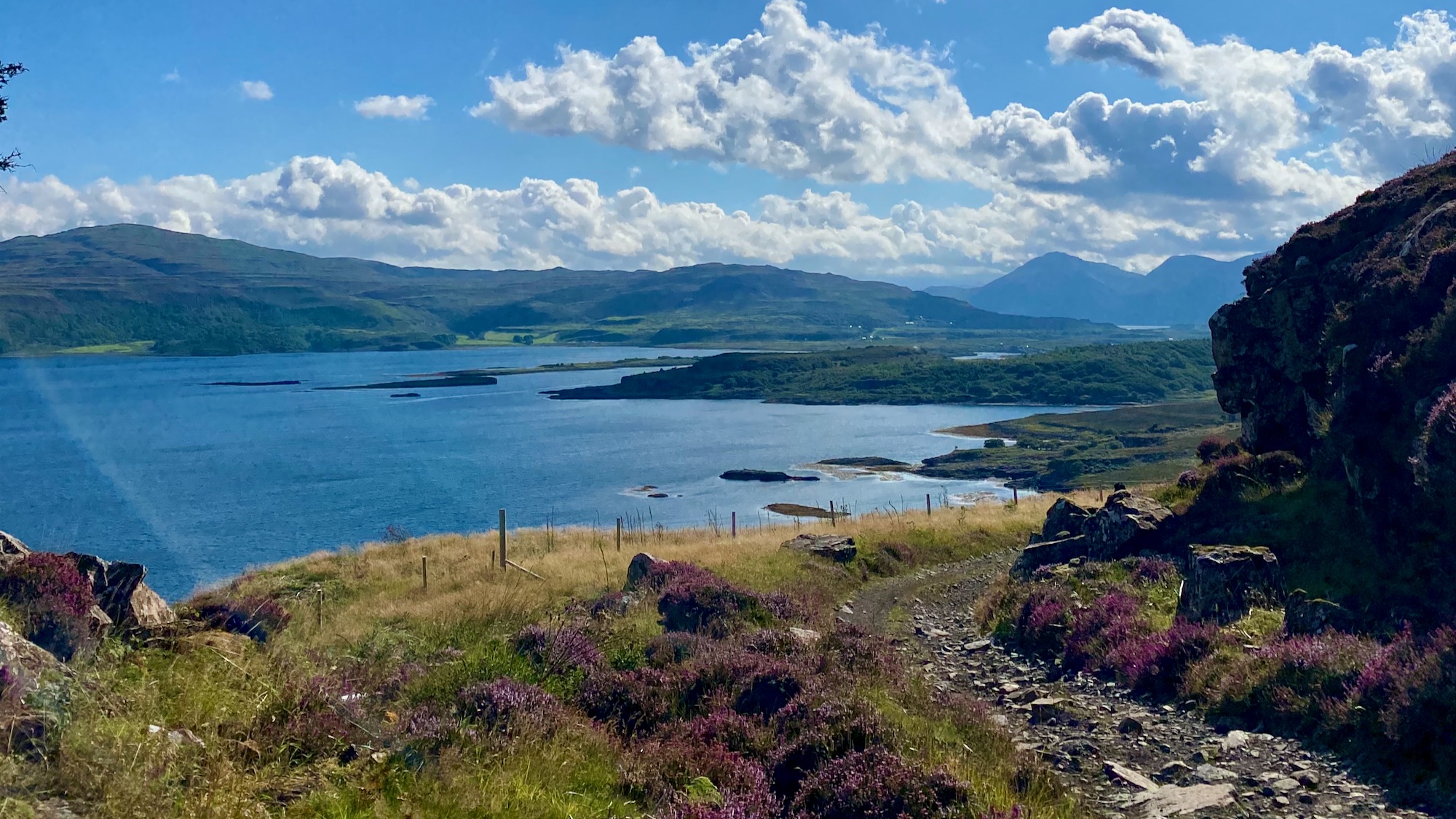
As the Scots say, "West is best". So for our August holiday we put that to the test, heading slightly further west than usual. But not by much. A few days west of our usual summer spot on Mull, in a off-grid Bothy on Ulva. A couple of hours walk from the ferry under leaden skies. Past the many cleared settlements. To arrive at the most perfect spot. A little house by the sea with a white sand swimming beach. In the evening a cosy fireplace and just enough comforts. Not to mention an owl outside the kitchen window. Not luxury in the holiday brochure sense, but a place to make family memories, which is it's own kind of luxury.
10/12/2023 permalink
The past is a foreign country.
I'm not sure why this resonated with me so much. Maybe it's the down to earth way that 'Fred' describes what is clearly a job that is beyond the capability of most people. Or the fact that this happened in my lifetime, but in a way that seems from another time - with no health and safety considerations, beyond taking a cigarette break every now and then. There's a touch of Callum's Road about Fred's attitude that anything is possible if you just get on with it.
Fred, in 1979, brought down a chimney brick by brick.
— Ewen Cameron (@EwenDCameron) September 6, 2023
This is an unbelievable watch.pic.twitter.com/0forMEoN34
07/09/2023 permalink
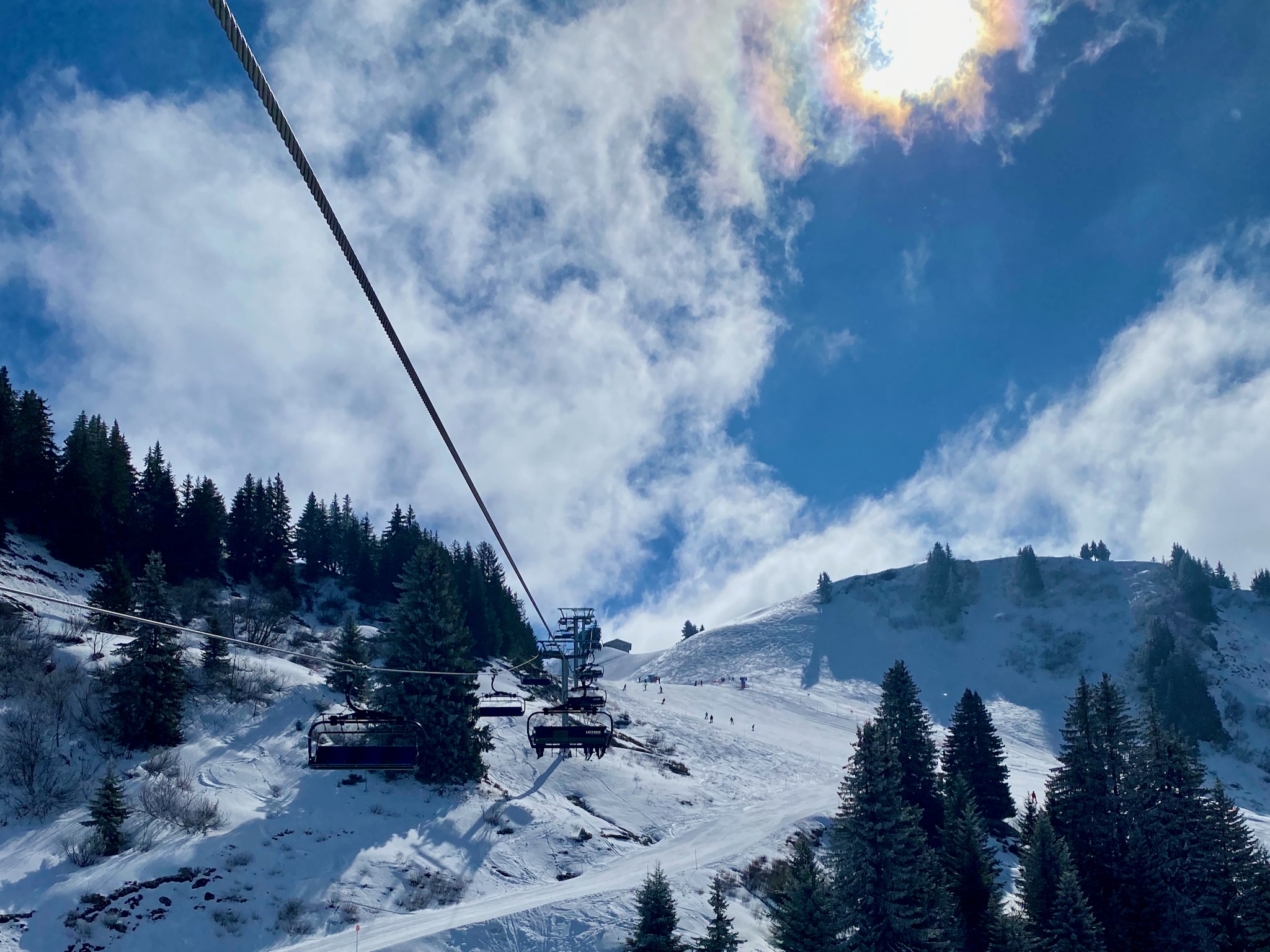
Life, COVID and everything else means that it's 6 years since we last went on a family ski trip. Having driven to the Dordogne and back in the summer, we decided on another EV road trip. An early start, a dash for the tunnel and before we know it we're at our overnight stop of Reims
The next day, with late season snow forecast we arrive full of excitement. Over the next few days the girls and their cousins maintain their enthusiasm - fuelled by mountain top crepes and bolognaise! We split our time between Morzine and Avoriaz, and despite the spring conditions there's plenty of runs (and cafes) open.
On our final day skiing there's a sprinkling of fresh snow and blue skies. The slopes are quiet and the kids do laps round a couple of runs - hopping on and off the chair lifts like veterans.
It's a joy to see them catch the skiing bug. I've pretty much failed to pass on any of my sporting passions, despite an almost constant stream of participation and spectating opportunities. Maybe winter sports will be the one that sticks. Six years was way too long, hopefully we'll all be back on the slopes next year.
13/03/2023 permalink
VP Engineering Dashboard
Productivity advice famously doesn't work. A persons tips are almost certainly only applicable to them - we are unique individuals, perhaps with only a love of searching the internet for productivity tips in common. So with that caveat I'm sharing an approach that's been working for me. Your mileage will vary as the internet often says.
Like lots of people in engineering lead roles I have a lot plates to spin. I have 3 main tools I use to make sure I'm dropping the right things - an infinite bullet list of notes and links (in Workflowy), my calendar (colour coded, but more on that later) and a Miro dashboard, which I spend a little bit of time updating on a Monday morning.
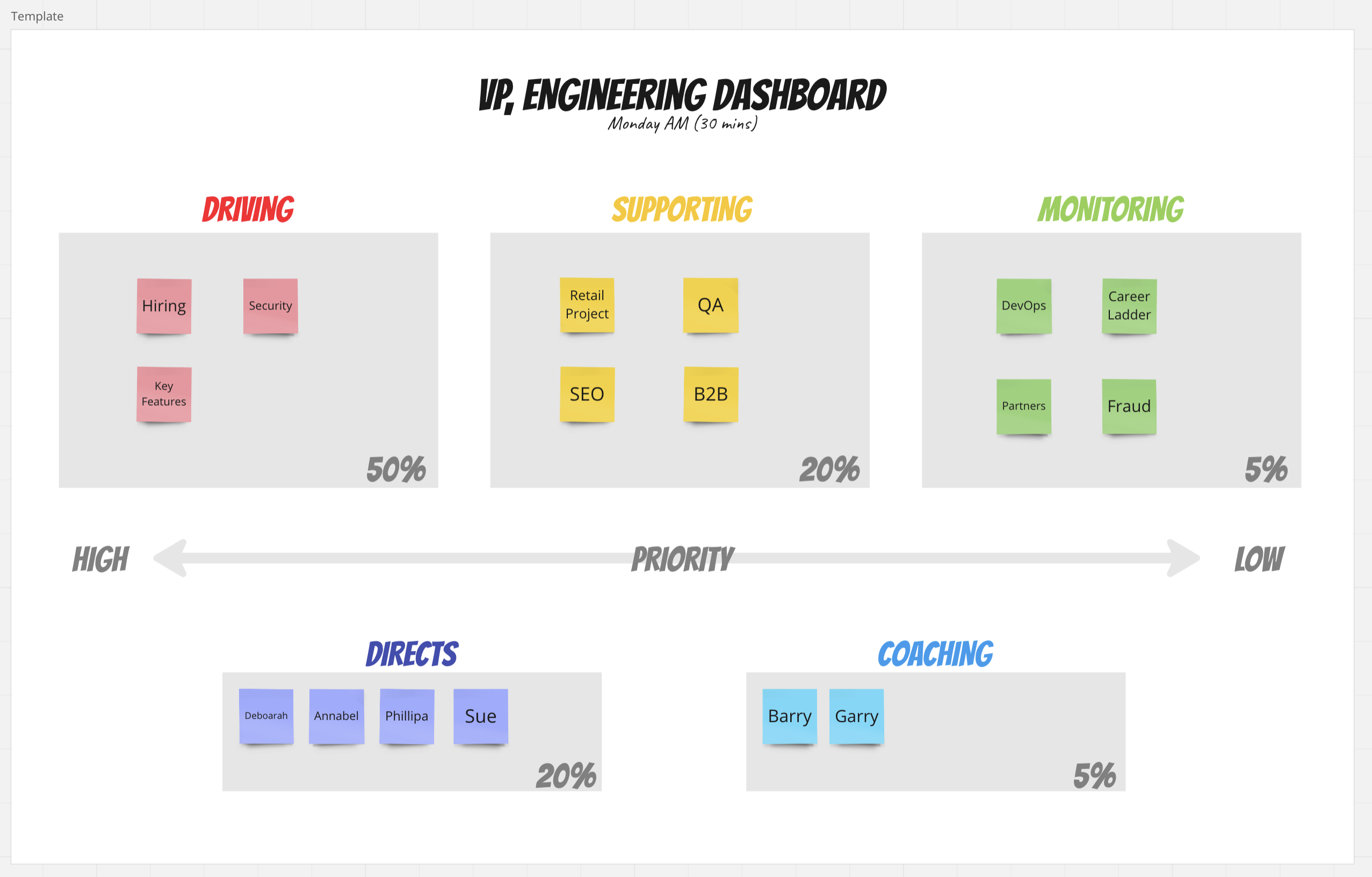
The dashboard is pretty simple, but it helps me ensure that I'm spending my time on the right things and also communicate to my team what I'm focussing on this week.
Driving (up to 50% of my time) - initiatives where I'm a key contributor, or I'm directly accountable
Supporting (20%) - important but I'm playing a supporting role
Monitoring (5%) - I need to know what's happening but I'm not a contributor
Directs (at least 20% of my time) - my direct reports
Coaching (~5%) - people I'm keeping an eye on (maybe skip reports) or am supporting in some way
The colour coding is the key, because I then use that in my calendar and notes to visually link everything together. If I glance at my calendar and there's two much green, then it means I'm not spending my time on the right things. It's not a hard and fast rule, but a heuristic that helps me keep things on track.

There's a template available in Miroverse if you want to give it a try.
18/04/2023 permalink
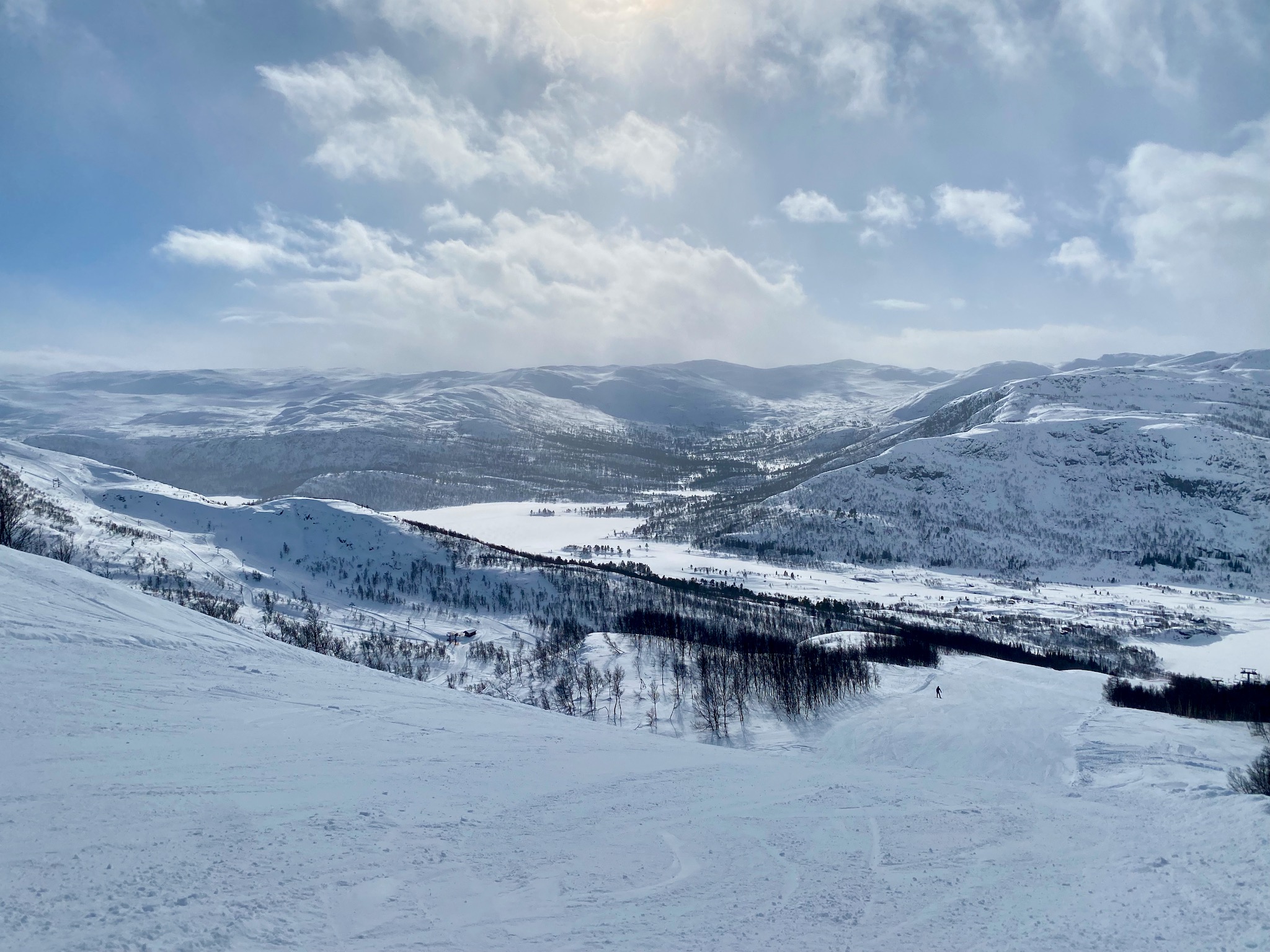
Mid-March and there's an unusual amount of un-seasonal snow in Northamptonshire. In the morning I'm battling through a few centimetres of snow on the local roads. But by early evening we are driving north from Oslo in -15°, through small towns that have metres of the stuff! A year on from the last trip we are older, but not wiser as my hangover on Sunday morning proves.
13/03/2023 permalink
Best photos of 2022
 Looking towards the long meadow on the edge of Maidford
Looking towards the long meadow on the edge of Maidford
There's only a couple of paths out of the village and the one through the long meadow heading North out of Maidford is the one we probably walk most often. I often try and capture the meadow on camera, but it rarely comes out as it looks to the naked eye. (6 January 2022)
-
 V+H at Burton Dasset
V+H at Burton Dasset
Burton Dasset Hills Country Park is, as the name suggests a hilly place. I love the way this picture captures the sense of achievement of V+H making it to the top of one of the short, sharp, climbs. (6 February 2022)
-
 H
H
All style, before breakfast. (23 Feburary 2022)
-
 From the top of a run at Edland, Telemark, Norway
From the top of a run at Edland, Telemark, Norway
The weather on the first day of a short trip to Norway was perfect, with crystal clear light. This captures the view looking down to the village below the small ski resort of Edland. (4 March 2022)
-
 V+H pushing their bikes, Betws-y-Coed, Snowdonia
V+H pushing their bikes, Betws-y-Coed, Snowdonia
We had a few days away in North Wales. The weather was as you might expect, but the girls were still keen to get out of their bikes - even if they were occasionally defeated by th epic gradients. (7 April 2022)
-
 Badby Woods, Northamptonshire
Badby Woods, Northamptonshire
Spring in a bluebell woods, when everything is full of life and colour - and the whole forest is full of birdsong. (8 May 2022)
-
 With Emma at Songs By The Lake
With Emma at Songs By The Lake
Out. Out! (4 June 2022)
-
 H taking a photo, Summer Solstice
H taking a photo, Summer Solstice
Heading home from dinner we stopped to enjoy the sunset, and take a few photos. H wanted to take one as too. (21 June 2022)
-
 Barn Owl Demonstration at Holdenby House
Barn Owl Demonstration at Holdenby House
I sometimes spot barn owls on the quiet lanes around the village, but it's nearly always just for a moment in the headlights. On a baking hot day we watched this amazing owl do a few laps of the grounds before it headed back to the shade. (9 July 2022)
-
 Commonwealth Games Athletics, Alexander Stadium Birmingham
Commonwealth Games Athletics, Alexander Stadium Birmingham
Even at the early morning qualifying heats 'Brum' put on a show. (3 August 2022)
-
 On the edge of Maidford
On the edge of Maidford
Beyond the long meadow and through the wheat field. (15 August 2022)
-
 Beynac-et-Cazenac, Dordogne, France
Beynac-et-Cazenac, Dordogne, France
The river Dordogne is a canoeing and paddleboard paradise. I snapped this whilst we stopped to catch our breadth climbing up to the hilltop village of Beynac. (25 August 2022)
-
 Louvre Museum, Paris
Louvre Museum, Paris
The Louvre is a brilliant place, full of amazing art works - but the crowding and the crush around this particular painting feels bizarre and unwelcome (though not a surprise). (28 August 2022)
-
 Cycling along a byway
Cycling along a byway
By the end of the summer Northamptonshire looked like a desert, but some of the dusty byways make great family cycle tracks. (25 September 2022)
-
 Maidford
Maidford
The moon and clouds made it look like someone was trying to send smoke signals from a neighbouring village. (3 October 2022)
-
 Manchester Art Gallery (15 October 2022)
Manchester Art Gallery (15 October 2022)
-
 Family Portrait Dunwich Beach, Suffolk
Family Portrait Dunwich Beach, Suffolk
Somehow captures the ridiculous nature of a Galvin family trip to the seaside. (27 October 2022)
-
 Lois Weedon, (9 November 2022)
Lois Weedon, (9 November 2022)
-
 Looking down the valley
Looking down the valley
The view from our bedroom "down the valley" seems to refresh every morning. I love this view, but it's not always easy to capture a good photo. With the naked eye you look past the neighbours houses, but the camera always seems to highlight the rooftops and garages. (13 November 2022)
-
 Cold walk, Maidford
Cold walk, Maidford
One of those cold winter mornings when the sun doesn't seem like it's going to make it above the horizon, and you know the temperature is going to steadfastly refuse to get to zero. (16 December 2022)
-
14/01/2023 permalink



































































